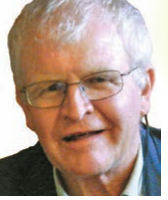Everyday leadership to better our country
After my column on the politics of contempt, Todd Miller from North Conway wrote: “What a refreshing read. My wife and I frequently become frustrated at the behavior we see on the local and national level, whether it be in Washington D.C. or on the street on our way home at night. I appreciate the fresh outlook and perspective you provide on the issue of bridging differences of perspective and the idea of trying to get back to a place where differences of opinion, or even open debate, can once again be done in a civil manner.”
These kind words reminded me of a 2018 report “Hidden Tribes: A Study of America’s Polarized Landscape.” Authors Stephen Hawkins, Daniel Yudkin, Míriam Juan-Torres and Tim Dixon identified seven segments of Americans (that they call “tribes”) distinguished by differences in beliefs and attitudes.
While the two extremes dominate the political conversation, they are often out of step with the majority of Americans, say the authors. They add, “intolerance for the other is a grave threat to our democratic system, as political actors cast off the restraints of convention and even the rule of law, with a ruthless determination to crush the other side no matter the cost.”
Crush the other side no matter the cost?
Yikes!
But there is hope! They identified a large segment of the population, “whose voices are rarely heard above the shouts of the partisan tribes. These are people who believe that Americans have more in common than that which divides them. While they differ on important issues, they feel exhausted by the division in the United States. They believe that compromise is necessary in politics, as in other parts of life, and want to see the country come together and solve its problems.”
The authors call this group the “Exhausted Majority.” I would put myself in that group. What about you?
How to move forward? The authors write: “To bring Americans back together, we need to focus first on those things that we share, and this starts with our identity as Americans. This can create the space for sometimes difficult but necessary conversations.”
So, what does this have to do with Growing Leadership? “When asked to identify the three most important issues facing the United States today,” the authors write, “Americans rank poor leadership as the country’s greatest problem.”
I suspect they are talking mostly about political leadership, but what about everyday leadership by people like you and me?
We all love our country, and, like family, we need to figure out how to get along.
After sharing a shorter version of this column in my monthly email, one reader wrote, “This ray of hope is refreshing, especially as the news is quite grim. Thank you for sharing these words of encouragement.” But there were also negative reactions.
A friend on the political left sent a long email arguing that it is “unproductive to attempt discourse with folks who are unwilling to accept as factual any facts not comporting with their own prejudices. I think you give these folks too much credit by calling them ‘conservatives;’ I can’t fathom anything they’re trying to conserve other than their own ill-gotten privilege. Though I commend your continually striving to bring folks together, I believe there are definite limitations to rapprochement.”
And a friend on the other side found the Hidden Tribes study “disturbing” and thought the authors “show a prejudice that we conservatives are distressed by and find unfair. The authors apparently hold the view that everybody on the right, just by virtue of holding views different from theirs (positions that have stood the test of 2,000 years of western civilization), is a right-wing extremist!” I don’t think the Hidden Tribes authors are calling for middle-of-the-road politics as much as suggesting that people spend time engaging with people outside their tribe in meaningful ways. “America’s Exhausted Majority wants to see the opposing tribes move beyond constant conflict,” the authors insist.
No, we don’t need to always agree — that is unrealistic. But we can disagree better, including conversations and really listening to those with different perspectives. My hope is that the Exhausted Majority can rise and demonstrate ways to lead our country better.
We each have an extraordinary opportunity to make a difference in people’s lives, including our own. Don’t underestimate your impact!
Douglass P. Teschner, founder of Growing Leadership LLC, can be reached at dteschner@Growing-LeadershipLLC.com.